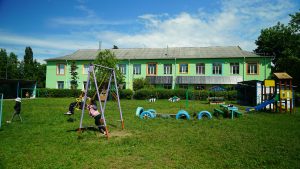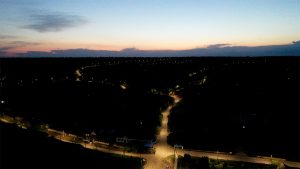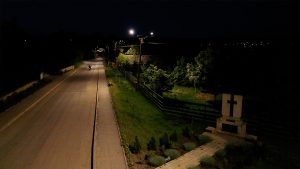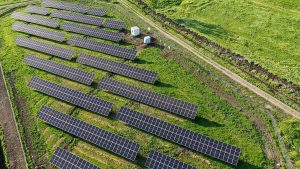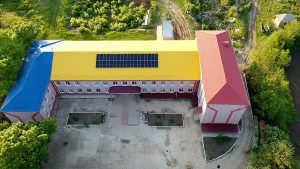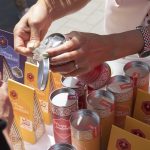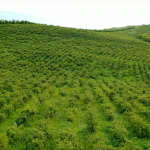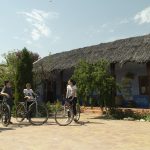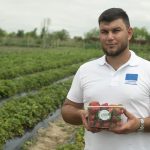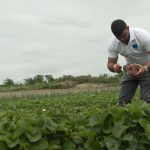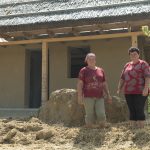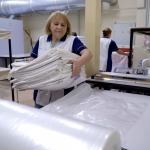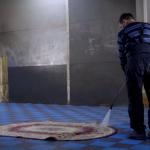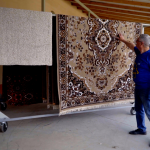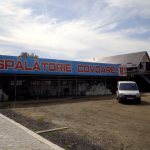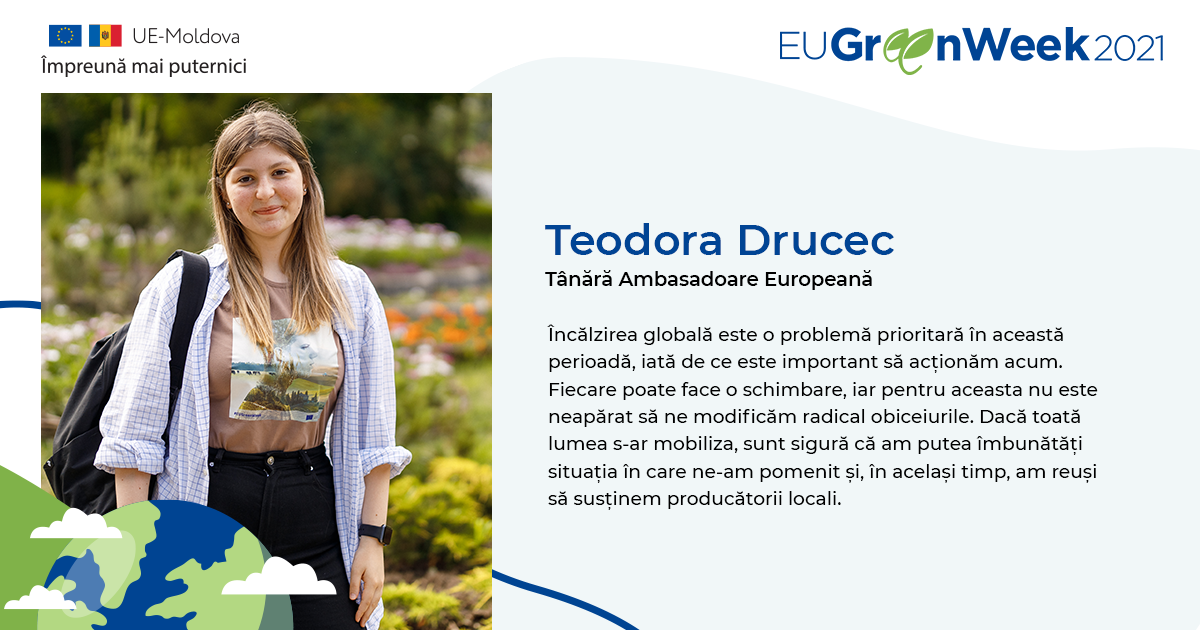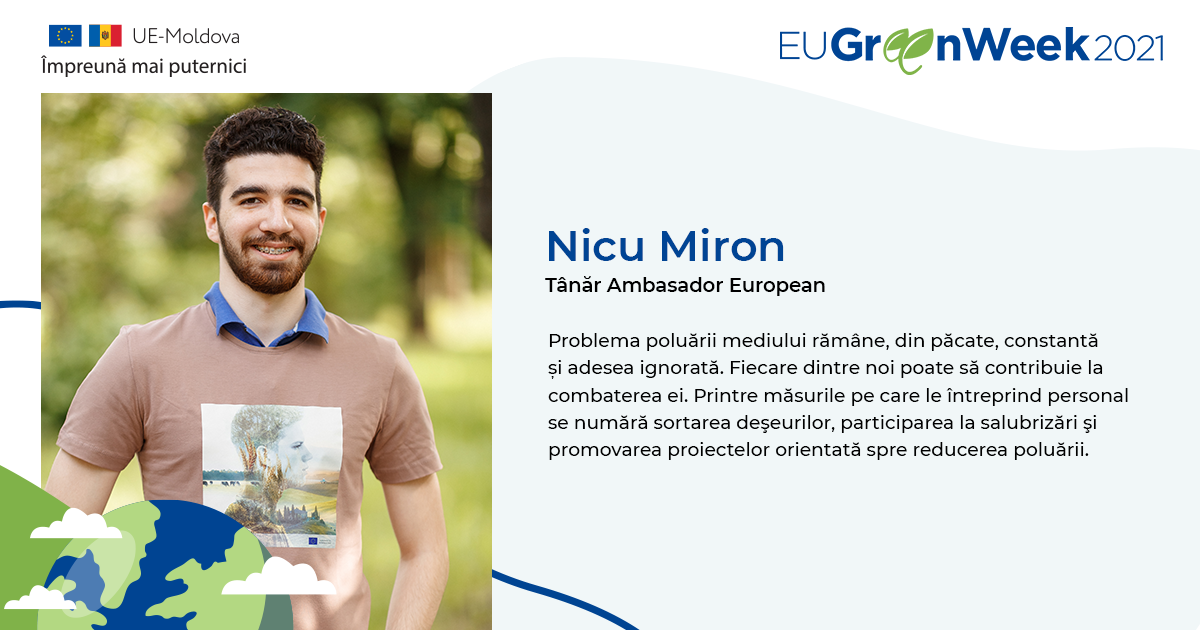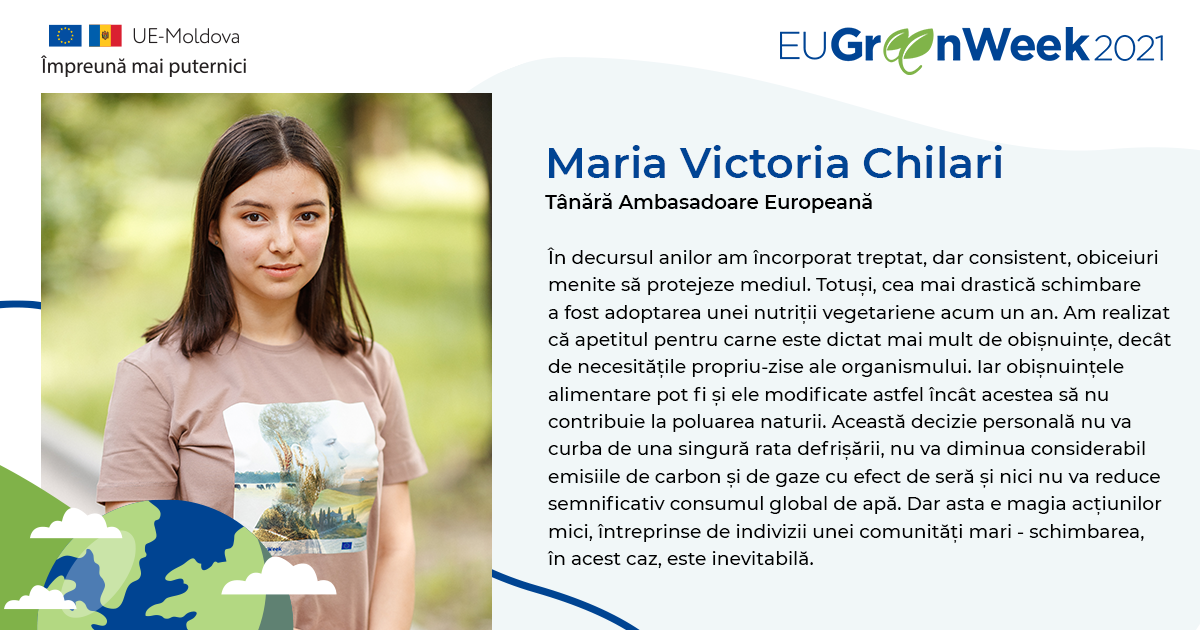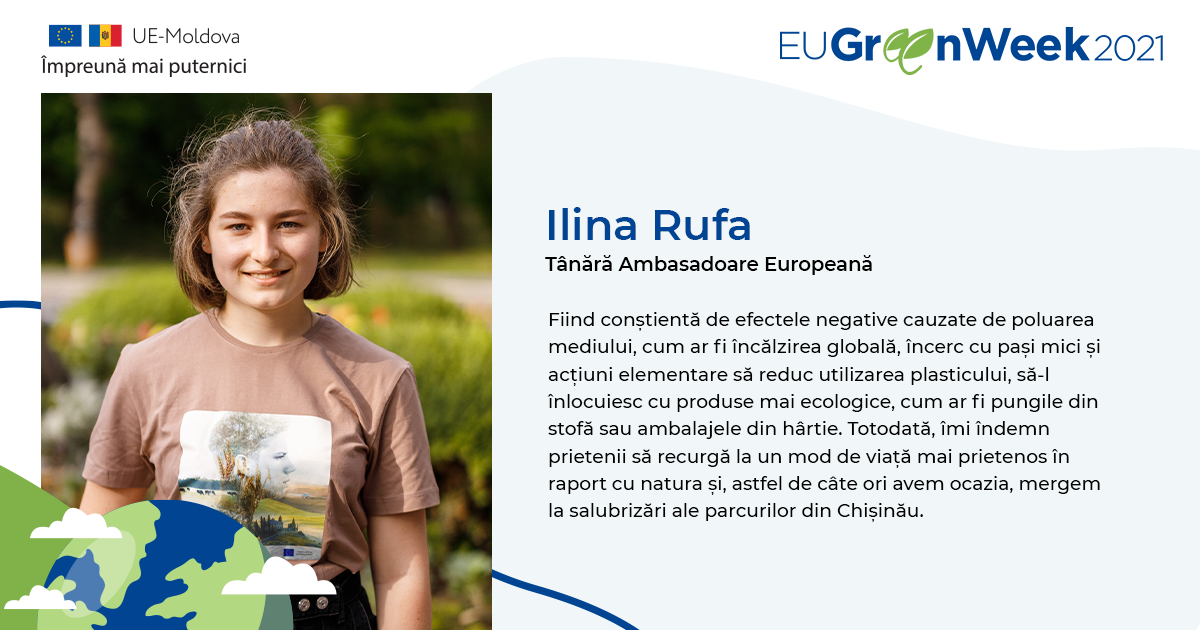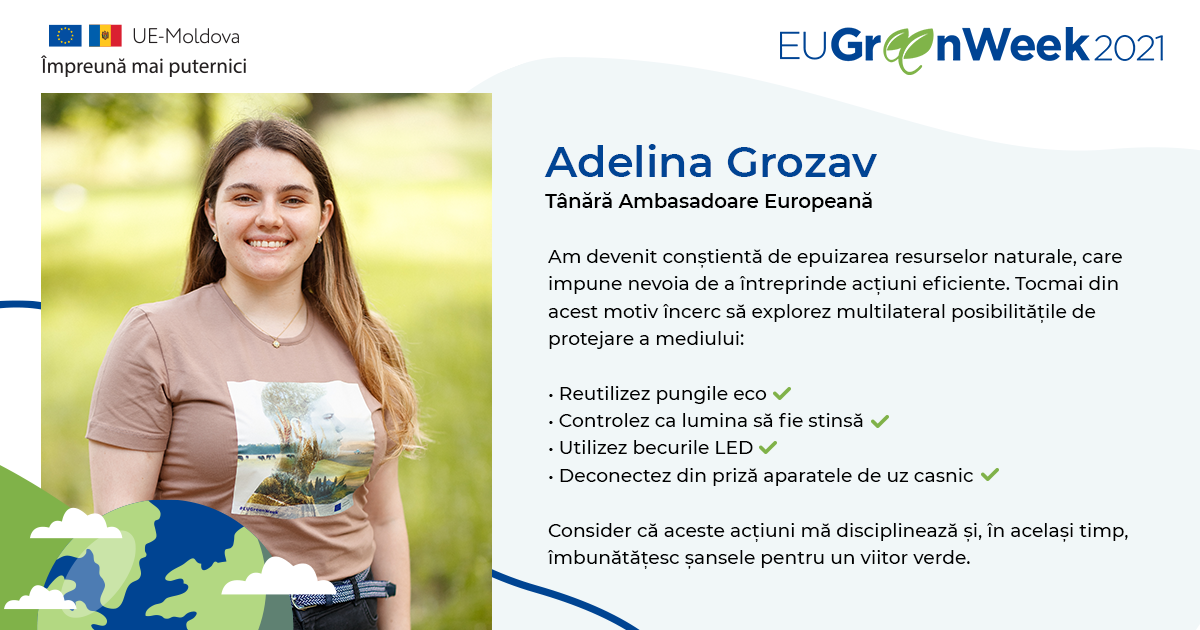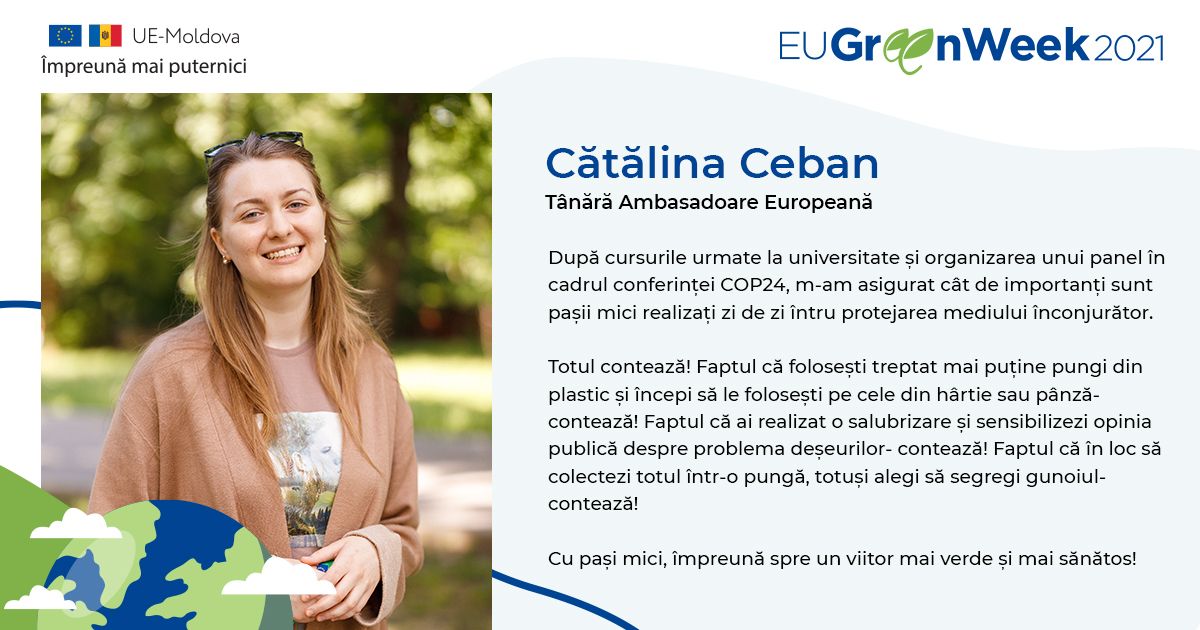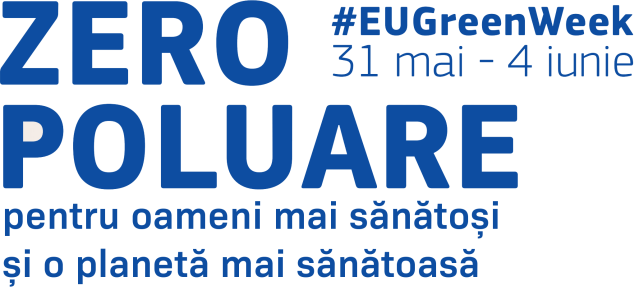
Peter Michalko, Ambasadorul Uniunii Europene în Republica Moldova
Poluarea afectează pe toată lumea – prin aerul pe care îl respirăm, apa pe care o bem sau terenul pe care cultivăm mâncarea. Este cea mai mare cauză de mediu care conduce la multiple boli psihice și fizice, și decese premature, în special în rândul copiilor, persoanelor cu anumite afecțiuni medicale și persoanelor în vârstă. Dar poluarea nu îi afectează pe toți în mod egal. Oamenii care locuiesc în zone mai defavorizate trăiesc foarte des aproape de locuri contaminate sau în zone în care există un flux foarte mare de trafic. Poluarea este, de asemenea, unul dintre principalele motive pentru pierderea biodiversității. Reduce capacitatea ecosistemelor de a furniza servicii precum captarea dioxidului de carbon și decontaminarea acestuia.
Dar aceasta poate fi prevenită. Planul de Acţiune al UE „Către reducerea la zero a poluării” este o acțiune cheie a Pactului Ecologic European programat pentru primăvara anului 2021. Acesta va contribui la crearea unui mediu fără substanțe toxice în întreaga UE, printr-o mai bună monitorizare și raportare și prin prevenirea și remedierea poluării din aer, apă, sol și produse de larg consum.
De asemenea, va sprijini redresarea post-COVID 19, ajutând la reconstruirea unei economii UE mai durabile, creând oportunități pentru locuri de muncă și reducând inegalitățile sociale.
Săptămâna Verde Europeană 2021 va fi dedicată „reducerii la zero a poluării”. Se vor analiza, de asemenea, alte inițiative ale Pactului Ecologic European, precum inițiativele climatice, viitoarea strategie privind produsele chimice, precum și inițiative în domeniile energiei, industriei, mobilității, agriculturii, pescuitului, sănătății și biodiversității.
Săptămâna Verde Europeană 2021, 31 mai – 04 iunie 2021 (https://www.eugreenweek.eu/ro), va fi o oportunitate de a interacționa cu toate părțile și cetățenii interesați cu privire la modul în care putem lucra împreună pentru a transforma în realitate reducerea la zero a poluării și un mediu fără substanțe chimice.
Virginijus Sinkevičius,
Comisarul European pentru mediu, oceane și pescuit
Comisarul European pentru mediu, oceane și pescuit
Asistența UE în domeniul protecției mediului (teaser)
Cantemir – Investiții în viitor:
grădinițe și școli prietenoase mediului
grădinițe și școli prietenoase mediului
Investiții în viitor: grădinițe și școli prietenoase mediului
O grădiniță așa cum și-o imaginează orice copil, luminoasă ca un soare și caldă ca obrajii mamei. Exact așa arată grădinița „Ghiocel” din orașul Cantemir după renovare. Aici, cu sprijinul Uniunii Europene, o instituţie gri, cu pereţi de calcar, niciodată izolaţi, s-a transformat într-un loc de vis pentru copii.
Renovarea grădiniței a avut loc acum un an, iar copiii și cadrele didactice de aici se bucură de căldura din interiorul clădirii, dar și de culorile pastelate ale pereților exteriori. Elena Costanda, directoarea grădiniței, se mândrește cu avantajele modernizării: „Aspectul exterior este plăcut și atractiv, costurile de întreținere în perioada rece a anului le-am redus cu aproximativ 20 la sută. Economie pe care planificăm să o utilizăm în construcția unor noi terenuri de joacă”.
Clădiri călduroase și aerisite, renovate din bani europeni
Economiile făcute de administrația grădiniței se datorează normelor și tehnologiilor europene moderne de eficiență energetică utilizate la renovarea grădiniței. Astfel, cu pereții exteriori termoizolați și colorați, panouri solare pe acoperiș, geamuri și uși exterioare noi, sisteme electrice și de ventilare moderne, dar și cu un punct termic individual, care asigură reglarea automată a temperaturii din interiorul instituției în dependență de temperatura din exterior, grădinița este una dintre puținele din țară prietenoase mediului și sigure pentru copii.
Administrația grădiniței susține că, fără ajutorul Uniunii Europene, ar fi avut nevoie de zeci de ani, ca să realize ceea ce s-a făcut în doar câteva luni. „Grădinița noastră a devenit una de vis. Ea a devenit nu doar frumoasă, dar și cu încăperi bine aerisite și cu o temperatură constantă”, susține directoarea instituției Elena Costanda.
„Copiii vin cu plăcere la grădiniță, iar munca noastră este mult mai ușoară”
Svetlana Blîndu lucrează în această grădiniță peste 25 de ani. Dascăla recunoaște că, în această meserie, este necesar să investești iubire și să te implici emoțional.Totuși, de-a lungul anilor, s-a convins că mediul și spațiul unde se desfășoară activitățile influențează mult în educația copiilor. „Când am început să activez era foarte incomod de lucrat. Iarna era rece. Când copiii dormeau la amiază, îi acopeream cu două plapume. Anul acesta am simțit diferența, ceea ce mi-a adus o satisfacție enormă. De când activez, nu am văzut ca, la amiază, copiii să doarmă în lenjerie. Iar vara, la ora 9 dimineața, deja ieșeam afară, pentru că era cald în grupe. Acum vara e răcoare, și iarna e cald”, recunoaște Svetlana Blîndu.
„Grădinița este ca o Cenușărească care și-a schimbat haina…”
Și părinții susțin că acum își duc odraslele cu o mai mare încredere la grădiniță. Popov Larisa este mama unui băiețel de 6 ani. Femeia susține că, până și sâmbăta, dacă ar funcționa instituția, copilul ei ar veni la grădiniță: „Copilul meu spune că merge la cea mai frumoasă grădiniță din oraș. Iar pentru noi, părinții, nu este doar frumoasă, dar și o grădiniță sigură și caldă. Îmi amintesc când aduceam copilul la grădiniță îmbrăcat ca o ceapă, cu multe rânduri de haine, acum vine în haine lejere și noi nu ne luăm așa des concediu, pe motiv că cei mici se îmbolnăvesc. Eu mereu spun: Grădinița noastră arată ca o Cenușăreasă care și-a schimbat haina”.
Datorită lucrărilor desfăşurate cu sprijin financiar european, clădirea instituţiei, veche de peste 50 de ani, oferă condiţii îmbunătăţite de învățare pentru 135 de copii din Cantemir.
Deja de doi ani, orașul Cantemir este parte a unui mare proiect european, care prevede reabilitarea termică a patru instituții educaționale din localitate: gimnaziul „Mihai Eminescu”, liceul „Dimitrie Cantemir”, grădinițele nr.1 și nr.2. Astfel, clădirile au fost izolate, în unele instituții urmează să fie instalate cazane pe biomasă, modernizate sistemele interne de încălzire, dar și cele de iluminare. Totodată, vor fi instalate echipamente de utilizare a energiei solare. Proiectul „CanTREB – Reabilitarea clădirilor educaționale din Cantemir” este finanțat de Uniunea Europeană, în cadrul Programului „Convenția Primarilor – Proiecte Demonstraționale” și are un buget total de 842 800 Euro, dintre care 20% reprezintă contribuția locală.
Feștelița – sat inteligent energetic
Feștelița – sat inteligent energetic
Au iluminat satul cu becuri LED, încălzesc clădirile principale cu surse ecologice și nu se opresc la cele obținute. Satul Feștelița, raionul Ștefan Vodă, urmează să fie localitatea cu zero consum de energie tradiţională, totul graţie sprijinului partenerilor europeni. De ani buni, satul este unul inteligent din punct de vedere energetic, iar, în premieră pentru ţara noastră, administraţia locală va gestiona un parc cu panouri fotovoltaice. Locuitorii satului susțin acțiunile ecologice, pentru că le pasă de soarta Pământului.
Ceea ce pentru multe sate şi oraşe din Moldova pare un vis aproape irealizabil, la Feşteliţa, raionul Ştefan Vodă, a devenit realitate. Cu sprijin financiar european, școala, grădiniţa şi casa de cultură din localitate au fost termoizolate și dotate cu baterii solare sau panouri fotovoltaice, astfel încât să fie redus consumul de energie electrică. Totul a început acum 12 la iniţiativa primarului Nicolae Tudoreanu. El şi-a propus să reducă, pe cât posibil, cheltuielile şi să protejeze mediul de emisiile de CO2.
„Noi ceea ce ne-am propus la Bruxelles, prin semnarea Convenției primarilor privind reducerea emisiilor de CO2, cu 20% până în anul 2020, am realizat. Instituțiile publice sunt eficiente energetic. Avem deja gospodării în sat care au instalate panouri fotovoltaice, colectoare solare pentru încălzirea apei menajere și tendința este una pozitivă”, spune primarul.
„Când ies noaptea afară, îmi pare că satul nostru e un orășel…”
Ce înseamnă ecologie și eficiență energetică cunosc aproape toți locuitorii satului, mai ales de când localitatea lor are statutul de „sat inteligent energetic”. Pe mătușa Ecaterina Becciu am găsit-o în parcul din centrul localitățiii. Femeia e obișnuită deja să răspundă la binețe oamenilor noi care vin să viziteze satul.
La cei 80 de ani ai săi, mătușa e mândră că satul lor a devenit un exemplu pentru localitățile din toată țara: „Când ies noaptea afară, îmi pare că satul nostru e un orășel. Totul e iluminat, frumos. Eu trăiesc aici pe un deal, nu m-am gândit niciodată că o să am apă în gospodărie și lumină pe străzi. Înainte veneam de la lucru noaptea, pe întuneric, noroi… Acum e bine, ani să am mai mulți”.
Iluminat la un click distanță
Împreună cu mătușa Ecaterina, de circa un an, se bucură de iluminare stradală inteligentă și cei aproximativ trei mii de locuitori ai satului. Din bani europeni, noul sistem a fost dotat cu aproape 600 de corpuri LED, montate pe aproximativ 20 de kilometri de străzi, care pot fi gestionate de la distanţă.
Radu Procopenco, managerul Întreprinderii Municipale, Servicii Comunale Feștelița, ne povestește din faţa calculatorului că „putem dirija de la calculator fiecare corp de iluminat în parte, putem regla intensitatea luminii. Astfel, în nopțile mai luminoase, când oamenii nu circulă pe străzi, intensitatea e mai mică. Noua tehnologie a adus, pe parcursul unui an, o economie de cel puţin 30% din electricitate. De exemplu, dacă înainte, pentru cei patru km de iluminat clasic, cheltuiam 60 de mii de lei anul, acum, la cei aproximativ 20 de km, planificăm să cheltuim aproximativ 100 de mii de lei”.
Economii cu ajutorul naturii
Un alt succes cu care se poate lăuda satul Feşteliţa este termoizolarea grădiniței și a gimnaziului. Anul trecut, la grădiniţă, gimnaziu, primărie şi la Casa de Cultură au fost instalate cazane pe bază de biomasă. Managera școlii, Valentina Cebotari, ne povestește cu mândrie despre instituția ecologică unde învață 273 de copii.
Valentina Cebotari este de părere că educația ecologică trebuie demonstrată copiilor încă de la vârstă fragedă: „În prezent, școala noastră beneficiază de trei componente de eficiență energetică. Avem cazan pe biomasă, sunt instalate panouri fotovoltaice pe școală și a fost termoizolată clădirea școlii. Noi optăm pentru energie de la soare și le povestim copiilor despre avantajele acestor tehnologii. Anul trecut am făcut o economie de 30 de mii de lei, bani pe care îi vom utiliza la dotarea sălilor de clasă. În prezent, în școală au loc mai multe lucrări de renovare, scopul principal al acestora sunt facilitățile școlare moderne, sigure și confortabile”.
„Locul unde a fost cândva gunoiştea satului va produce bani…”
Și la primăria din localitate lucrările sunt în toi. Aici au fost schimbate tâmplăriile, uşile, ferestrele, este realizată termoizolarea clădirii şi au fost instalate podele calde, totul cu scopul de a economisi energie și a proteja mediul. Primarul localităţii ne-a arătat și viitorul parc de panouri fotovoltaice care va aduce venituri anuale de peste 800 de mii de lei. „Acum locul unde a fost cândva gunoiştea satului va produce bani. Energia solară va fi transformată în energie electrică şi va fi vândută unui furnizor. Bani care vor veni în bugetul primăriei și îi vom redirecționa pentru alte necesități pe care le are localitatea”, ne relatează primarul Nicolae Tudoreanu.
Potrivit acestuia, relaţia localităţii cu Uniunea Europeană a început acum 12 ani, după ce a efectuat mai multe vizite în ţările membre ale blocului comunitar, iar de atunci este cu ochii pe toate inovaţiile care pot fi implementate şi în satul său de baștină.
De-a lungul anilor, Uniunea Europeană a susținut și a contribuit la dezvoltarea proiectelor legate de eficiența energetică și reducerea emisiilor de carbon în Moldova. În fiecare an, primăriile din țara noastră primesc sprijin financiar din partea Fondului pentru Eficiență Energetică din Moldova, pentru a modernizarea clădirilor corespunzător standardelor înalte de eficiență energetică. Costul total al programului „Convenţia primarilor – proiecte demonstraţionale” constituie aproximativ 800 de mii de euro, dintre care investiţia UE este de 500 de mii de euro, iar contribuţia beneficiarului este de 300 de mii de euro.
Aroma Pădurilor în ceașca ta
Pregătesc ceaiuri aromate și ecologice direct din inima Codrilor Moldovei. O familie tânără, cu vise mărețe, a dezvoltat o afacere de creștere a plantelor aromate pentru ceai în localitatea Năpădeni, raionul Ungheni.
Plantația ocupă o suprafață de peste 22 de hectare, 17 ha dintre acestea fiind ocupate de măceșe. Cu ajutorul unui grant în valoare de 26 300 de euro obținut de la Uniunea Europeană, dar și prin contribuție proprie, antreprenorii vor investi în modernizarea sistemului de irigare, instalarea panourilor fotovoltaice și, totodată, vor contracta servicii de expertiză în marketing.
Dumitru Chitoroagă își trage rădăcinile din raionul Ungheni, a revenit aici cu drag când şi-a lansat, în 2013, o afacere de producere a ceaiurilor naturale şi de cultivare de plante medicinale. În satul Năpădeni, raionul Ungheni, el crește mentă, lămâiță, gălbenele, romaniță şi alte plante. Ceaiurile produse sub brandul „Aroma Pădurilor” sunt vândute în peste 70 de magazine din ţară, dar şi exportate în ţări, precum Canada, SUA, Italia și Rusia. Iar 60% din materia primă obținută este distribuită către o companie de cosmetice.
Ceaiuri din Republica Moldova pe piața internațională
Acum, scopul antreprenorilor este să recolteze mecanic plantele, deoarece majoritatea muncii se face manual. „Grație finanţării UE, marca „Aroma Pădurilor” va cuceri noi pieţe internaţionale, cum ar fi România, Belgia, Japonia. De asemenea, vom produce cantităţi mai mari de plante medicinale şi aromatice ecologice”, ne povestește soția lui Dumitru, Corina, care se ocupă de administrarea afacerii.
ECO este cuvântul pe care îl găsim și pe cutiile de ceai. Administratoarea afacerii, Corina Murzac, se mândrește cu faptul că ceaiurile produse de ei sunt din zone ecologice, plantația fiind situată în zona Codrilor, la scurtă distanţă de rezervaţia ştiinţifică „Codrii”. „Însăși V.V. Dokuceaev, arhicunoscutul savant rus, autorul lucrării „Cu privire la solurile Basarabiei”, a numit această regiune „Elveţia basarabeană””, accentuează Corina Murzac.
Plante crescute pe câmpuri ecologice
Din dorința de a fi cât mai prietenoși mediului, antreprenorii se axează pe trei direcții-cheie: utilaj modern, atenție sporită la procesul de producere ecologică și inovație. Iar cu sprijinul financiar primit de la Uniunea Europeană, acest lucru va putea deveni realitate. „Cu ajutorul banilor primiți de la Uniunea Europeană, vom construi un sistem modern de irigare și vom instala panouri fotovoltaice care ne vor ajuta în procesul de lucru. Toate acestea vor contribui la creșterea volumului de lucru, dar și la creșterea afacerii noastre”, ne povestește Corina Murzac.
O afacere de succes are și secrete, mărturisește antreprenoarea. Iar secretele unui ceai gustos și aromat încep de la sămânța utilizată până la modul de îngrijire, uscare și împachetare. De toate acestea au grijă minuțios reprezentanții ceaiului „Aroma Pădurilor”. „Sămânța o procurăm de la Institutul de Genetică, tot ce avem noi pe câmp e verificat, analizat de experți, astfel ca, în rezultat, să avem un ceai cât mai gustos. Plantele sunt îngrijite manual, noi angajăm zilieri, și lucrul se face atent și curat”, accentueaza Corina Murzac.
„Scopul nostru, când am deschis această afacere, a fost să nu plecăm din țară…”
Planurile de viitor ale familiei Chitoroagă se rezumă, de fapt, la unul: „Scopul nostru, când am deschis această afacere, a fost să nu plecăm din țară, să investim și să rămânem aici. Tare ne sunt dragi locurile unde cresc plantele noastre, avem o țară atât de frumoasă, cu pământuri fertile, putem să ne dezvoltăm afaceri și acasă, în Republica Moldova”.
Fondatorii ceaiului „Aroma Pădurilor” fac parte din cei 28 de beneficiari ai programului de granturi pentru business din regiunile Cahul și Ungheni. Grantul are o valoare totală de până la 700 000 de euro, asistență oferită de Uniunea Europeană pentru dezvoltarea sectorului privat din regiunile-cheie. Oamenii de afaceri au fost selectați în cadrul unui concurs desfășurat de programul „EU4Moldova: Regiuni-cheie”, la care s-au înscris 140 de antreprenori din raioanele Cahul și Ungheni.
Afaceri ECO datorită asistenței Uniunii Europene
Au muncit ani buni în afara țării, dar dorul de casă și dorința de a dezvolta locurile natale i-au readus la baștină. Victor Voina și familia Știrbeț sunt antreprenori din raionul Cahul, care au decis să preia experiența țărilor europene în dezvoltarea afacerilor locale.
Victor Voina este un tânăr ambițios care și-a propus să facă agricultură modernă și ecologică în sudul țării. A revenit în țară și familia Știrbeț, toți membrii familiei s-au implicat în dezvoltarea turismului local prin construcția unei agropensiuni. Cei doi antreprenori, cu sprijinul financiar al Uniunii Europene, pun accent, în dezvoltarea afacerilor, pe utilizarea tehnologiilor ecologice.
La Pensiunea Eco-Village din satul Văleni, raionul Cahul, lucrările sunt în toi. Patru căsuțe rustice, care au curțile amenajate tematic, conform îndeletnicirilor țăranilor din Lunca Prutului de Jos, sunt în plin proces de construcție. Pensiunea este afacerea familiei Știrbeț din satul Văleni. Toți sunt implicați în pregătirea pensiunii pentru redeschiderea acesteia. Până la marele eveniment, gospodarii trebuie să pregătească căsuțele de primire a oaspeților, dar și să amenajeze curțile. Astfel, potrivit Mihaelei Știrbeț, „în acest an, la Văleni, vor fi disponibile 24 de locuri noi de cazare. Căsuțele sunt cu priveliște spre renumitele Coline de Aur, cu care se mândrește satul nostru. Tot vara acesta o să construim, cu ajutorul banilor primiți de la Uniunea Europeană, o piscină și o saună, totul pentru confortul clienților noștri”.
Case construite cu materiale ecologice
Extinderea pensiunii este posibilă datorită grantului acordat de Programul „EU4Moldova: Regiuni-cheie” companiei „RUMIX STIL” SRL, care deține Eco-Village Văleni, în cadrul categoriei „Companii Existente”. Cele 30 000 de euro, asistență din fonduri europene, plus contribuția proprie, vor fi investite în dezvoltarea infrastructurii pensiunii extinse: dotarea complexului cu sistem de canalizare, construcţia piscinei şi a saunei cu ciubere din lemn, mobilarea celor opt camere noi, achiziţia echipamentului necesar pentru turism de aventură şi al facilităților de tratament naturist. La fel, va fi îmbunătăţită pagina web a pensiunii www.complexvaleni.com.
Administratoarea pensiunii, Mihaela Știrbeț, ne povestește mândră că tot ce se face și se mănâncă la Eco-Village Văleni este natural: „Fructele, legumele sunt din grădina proprie, lactatele sunt de la animalele din gospodărie sau de la locuitorii din sat. Clienții noștri se vor putea delecta cu un vin gustos de casă, noi avem și o mică fabrică de vin, Corbu Winery. Iar căsuțele unde o să stea oaspeții noștri, sunt construite după tehnologia bunicilor noștri, muruite cu lut și paie, acoperite cu stuf, fiecare căsuță va avea propria curte, dar și particularități distincte. Va fi Casa Pescarului, Casa Dulgherului, Casa Ciobanului și Casa Morarului, iar curțile acestor căsuțe vor fi specifice denumirii”.
Sere încălzite cu ulei uzat
Cu produse ecologice lucrează și Victor Voina, un tânăr antreprenor din orașul Cahul. După ce a muncit mai mulți ani în sectorul agricol atât în țară, cât și în România, antreprenorul a decis că experiența acumulată îl va ajuta să-și deschidă o afacere în domeniul zarzavaturilor la el acasă.
Grantul obținut în cadrul Programului „EU4Moldova: Regiuni-cheie” îl va ajuta să-și extindă afacerea. Cei 25 000 de euro, plus contribuția proprie, sunt investiți în construcția unei sere pentru cultivarea zarzavaturilor ce va avea sistem de încălzire prin utilizarea uleiului uzat. „Din start, ne-am propus să creăm o afacere prietenoasă mediului. Avem o fermă, unde o să construim două sere, ambele după tehnologii eco. Vom cultiva zarzavaturi, iar sera o vom încălzi cu ulei obținut de la o altă afacere a noastră, o pizzerie. Tot uleiul uzat de la bucătăria noastră, dar și de la alți producători din oraș, va fi folosit la încălzirea serei”, ne spune Victor Voina.
Salata, ceapa verde, mărarul, pătrunjelul, menta, rucola, busuiocul crescute de familia Voina vor fi vândute rețelei HoReCa din regiune, dar, totodată, vor asigura pizzeria – o altă afacere de familie – cu verdețuri proaspete, de-ale casei. „Ideea acestei afaceri a pornit din propria necesitatea, noi avem necesitate de verdețuri, legume pe tot parcursul anului. În perioada rece a anului plătim prețuri exagerate pe verdețuri. Eu sunt inginer horticol de meserie și cetățean al unei țări cu profil agrar și noi putem cultiva aceste verdețuri acasă”, explică antreprenorul.
„Sticlele – material bun pentru construcţia serelor…”
Tot din necesitate și din dorința de a proteja mediul, Victor Voina construieşte o seră din peste 70 de mii de sticle, la doi metri sub pământ. Ideea i-a venit din dorinţa de a reutiliza sticlele care urmau să ajungă la gunoi. „Ştiam că o parte din agenţii care comercializează bere le colectează, dar cea mai mare parte se aruncă la gunoi. Sticlele s-au dovedit a fi un material bun pentru construcţie, ele păstrează energia termică. Această seră va fi foarte uşor de încălzit în timpul iernii”, ne relatează Victor Voina.
Un alt deșeu, care urmează să fie reutilizat, sunt cutiile din metal. „Am colectat toate conservele de metal de la local. Pe viitor ele o să devină ghivece, unde o să cultiv zarzavaturi. Iar aceste ghivece cu verdeață vor fi comercializate și oferite în calitate de bonus pentru clienții permanenți”, spune Victor Voina.
Ideile inovative de protecție a mediului sunt susținute și încurajate de Uniunea Europeană. Astfel, 28 de antreprenori din regiunile Ungheni și Cahul au primit granturi pentru dezvoltarea afacerilor prietenoase mediului. Companii existente, startup-uri și inițiative de antreprenoriat social beneficiază de granturi în valoare totală de până la 700 000 euro.
Curățătorie în stil european
Spălătorii avem multe în țară. Ecologice? Le putem număra pe degete. La Ungheni însă, există doar una – a Cristinei Scutaru. Compania „Unfloria” prestează servicii de curățare și spălare a articolelor textile, inclusiv a covoarelor, dar și de coasere a textilelor pentru casă. Administratorii afacerii utilizează doar detergenti ecologi la spălarea textilelor. Mai mult, pentru a economisi energie electrică, apa este încălzită cu ajutorul bateriilor solare. Totul, pentru a fi cât mai prietenoși mediului.
Cu banii obținuți de la Uniunea Europeană, dar și contribuție proprie, fondatoarea companiei, Cristina Scutaru va achiziționa o mașină automată pentru spălarea covoarelor și echipament aferent acesteia. Astfel, compania își va spori calitatea și rapiditatea serviciilor prestate. Fondatoarea spălătoriei, susține că: „În prezent noi spălăm covoarele prin metoda clasică, cu un furtun cu apă, cu presiunea înaltă, ceea ce nu ne permite să facem nici o economie. Odată cu procurarea liniei de spălare a covoarelor, noi vom putea economisi aproximativ 20% la energie electrică, și 40% la consumul de apă, și vom angaja persoane noi în câmpul muncii.”
Covoare curățate ecologic
O dată cu creșterea numărului angajaților și cu instalarea noilor tehnologii, compania planifică să crească volumul de lucru. „În primul rând va fi mașina de scuturat covoare, apoi mașina de spălat, centrifugat și finisat. Vor fi patru utilaje separate, prin intermediul cărora vom mări volumul de lucru, o să avem o calitate mai bună și vom micșora prețurile pentru prestarea serviciilor.”, ne povestește Sergiu Scutaru, administratorul companiei.
Pentru reducerea poluării solului și apelor subterane, compania utilizează detergenți biodegradabili care sunt hipoalergenici, fiind compuși din ingrediente naturale și enzime de curățare. „Compania noastră folosește doar detergenți biodegradabili. Detergenți care nu dăunează mediului înconjurător, nu dăunează nici țesăturii hainelor, sunt detergenți care se dizolvă rapid și ne permit să economisim apă în procesul de clătire.”, menționează Cristina Scutaru.
Economii cu ajutorul tehnologiilor ecologice
Din respect pentru mediul înconjurător, în cadrul companiei sunt utilizate mai multe tehnologii prietenoase mediului, administratorul SRL-ului ne povestește cu lux de amănunte cum funcționează sistemul de spălare utilizat de ei. „Noi avem trei surse pentru a încălzi apa. Vara utilizăm bateriile solare, iarna utilizăm cazanul pe biomasă sau metoda clasică – cu ajutorul gazului. Toate mașinile noastre de spălat primesc deja apă încălzită, iar acest lucru ne permite să facem economii.”
Practicile de a fi cât mai prietenoși mediului, fondatoarea companiei spune că le preia de la expozițiile europene la care participă. De acolo aduc la Ungheni cele mai bune practici și soluții pentru curățarea țesăturilor.
„Unfloria” este unul dintre cei 28 de beneficiari ai Programului de granturi pentru sectorul business din regiunile cheie Ungheni și Cahul. Fondatoarea companiei, Cristina Scutaru beneficiază de un grant în valoare de 30.000 EURO acordați din fonduri europene în cadrul Programului „EU4Moldova: regiuni-cheie” (2019-2024), care susține dezvoltarea social-economică inteligentă, incluzivă și durabilă în regiunile Cahul și Ungheni, pentru a asigura cetățenilor o calitate mai bună a vieții. Programul are un buget total de 23 mln. euro, este finanțat de Uniunea Europeană și implementat de Programul Națiunilor Unite pentru Dezvoltare (PNUD) și Fondul Națiunilor Unite pentru Copii (UNICEF).
Ungheni: Apeduct modern și canalizare
soluție pentru problemele de mediu
soluție pentru problemele de mediu
Apeduct modern și canalizare – soluție pentru problemele de mediu
„Vom avea azi apă la robinet sau nu?” – cea mai des întâlnită întrebare în rândul locuitorilor de pe strada Națională din municipiul Ungheni nu se mai aude de aproape un an. Periodic, din cauza apeductului învechit, locuitorii orașului, instituțiile publice și comerciale rămâneau fără apă la robinet. Cu sprijinul financiar al Uniunii Europene (UE), a fost construit un nou apeduct cu o lungime de peste 1600 de metri, care asigură cu apă potabilă de calitate mai mult de 24 000 de oameni. Tot cu ajutorul UE, peste 130 de gospodării, localizate într-un sector lipsit până în prezent de canalizare, vor beneficia de acest serviciu.
Astfel, investițiile făcute de Uniunea Europeană vor reduce gradul de poluare a mediului înconjurător cu scurgeri de apă și canalizare nedorite și nocive pentru locuitorii municipiului Ungheni.
Svetlana Nagnibeda locuiește pe strada Națională din municipiul Ungheni mai bine de șapte ani. Femeia ne povestește mulțumită despre avantajele noului apeduct, construit pe strada principală a orașului: „Fără apă, nu poți nici mâncare să faci, nu poți utiliza baia. Deseori, soțul aducea cu mașina butelii mari cu apă sau mergeam la magazin și cumpăram. De când a fost construit noul apeduct, am uitat cum făceam rezerve de apă”.
Locuitorii de pe artera principală a orașului rămâneau fără apă, deoarece gradul de uzură a țevilor de apeduct era de peste 150%, iar un sfert din apa livrată nu ajungea la robinet din cauza pierderilor în rețeaua publică de distribuție. Tot pe această stradă se află și liceul teoretic „Mihai Eminescu”, cea mai mare instituție din regiune. „Noi avem peste 1200 de copii și peste 100 de angajați. Fără apă era destul complicat. Când era avarie la apeduct, cei de la Apă-Canal ne aduceau o cisternă cu apă, făceam rezerve în căldări, la bucătărie erau butelii speciale, oricum era inconveniență. Odată cu construcția apeductului, terenul din fața instituției nu mai este deteriorat ca înainte, când trebuia reparat apeductul. Cel mai important, pentru noi, este calitatea apei, și apa e bună”, subliniază Petru Langa, directorul liceului teoretic „Mihai Eminescu”.
„E complicat să explici clienților că, în secolul XXI, nu avem apă curentă”
Mulțumiți de calitatea noului apeduct sunt și agenții economici de pe strada Națională. Dumitru Marjină este unul din cei 942 de agenți economici care activează pe artera principală a orașului. Antreprenorul susține că problemele create de lipsa apei erau adevărate provocări.
„Sistematic aveam probleme cu apa. Vă imaginați, noi activăm în sectorul alimentației publice. Când nu era apă, nu puteai activa! În cazul nostru, totul depinde de apă: spălarea vaselor, igiena, totul. Dacă la bucătărie, uneori, ne ajuta rezerva de apă, la baie stăteam cu scaunul în ușă. E complicat să explici clienților că, în secolul XXI, nu avem apă curentă”, relatează Dumitru Marjină.
Potrivit autorităților locale, rețeaua de distribuție din municipiul Ungheni a fost construită în anul 1978. De atunci, cu mici excepții, se făceau doar unele renovări. Viceprimarul orașului, Denis Ternovschi, susține: „Disconfort era nu doar din cauza lipsei apei, dar și a șantierelor care existau pe tot perimetrul acestor țevi. Erau scurgeri care nu erau vizibile, era o risipă de apă potabilă curată atât din punct de vedere ecologic, cât și financiar”.
Sistemul de canalizare va deschide fântânile
Odată cu construcția apeductului, autoritățile locale din municipiul Ungheni, cu sprijin financiar european, extind și sistemul local de canalizare. Astfel, pe o porțiune de peste 2300 de metri din centrul orașului, este în plină construcție rețeaua de canalizare. Acest sector, până în prezent, a fost lipsit de asemenea serviciu.
Pe Ana și Constantin Gorincioi i-am găsit trebăluind în curtea casei. Cei doi vârstnici ne-au arătat sistemul de canalizare construit de ei acum 24 de ani – o fosă de 5 m adâncime. „Groapa aceasta trebuie curățită o dată la câteva luni. Miroase. Noi avem o fântână peste drum de poarta noastră, dar nu putem lua apă de acolo. Era bună apa din fântână, dar, de când vecinii au făcut astfel de gropi în curte, nimeni nu mai bea apă de acolo. Sperăm că, odată cu construcția canalizării, vom deschide fântâna”, ne povestește gospodarul casei în timp ce acoperă cu un capac de la canalizare fosa din curte.
Împreună cu familia Gorincioi, alți peste 14 000 de oameni, dar și 11 agenți economici vor avea acces la sistemul public de canalizare, datorită asistenței financiare a Uniunii Europene. În cadrul proiectului, a fost instalată și o stație modernă de pompare, care va transmite digital informația către dispeceratul central. Astfel, angajații Întreprinderii Municipale „Apă-Canal” Ungheni vor primi date în regim live despre cantitatea de ape uzate, avariile de rețea, devierile de tensiune sau cazurile de deconectări de la energia electrică.
Construcția Apeductului principal din orașul Ungheni, dar și extinderea rețelei de canalizare face parte din proiectul „Reabilitarea și extinderea sistemelor de aprovizionare cu apă și canalizare în localitatea Ungheni”, finanțat de Uniunea Europeană. Proiectul este parte a Programului „EU4Moldova: regiuni-cheie” (2019-2024), care susține dezvoltarea social-economică inteligentă, ecologică, incluzivă și durabilă în regiunile Cahul și Ungheni, pentru a le asigura cetățenilor o calitate mai bună a vieții.
Tinerii Ambasadori Europeni s-au alăturat Săptămânii Verzi Europene. Au luat inițiativa în propriile mâini și au ieșit în stradă să le vorbească locuitorilor capitalei despre protecția mediului înconjurător. Schimbarea pornește de la noi. Zero poluare pentru planetă și oameni mai sănătoși.



